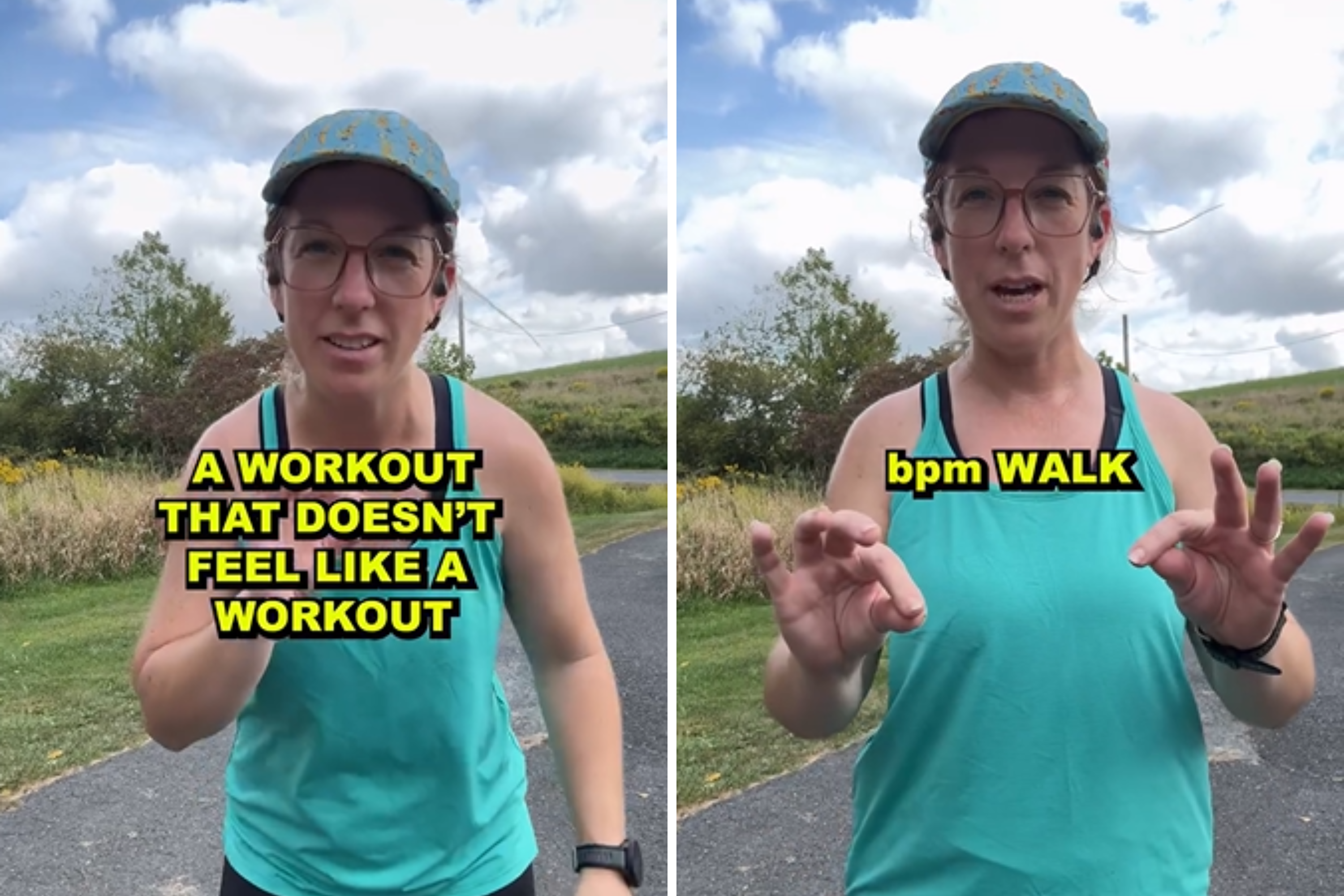Fitness
Beats per minute walking may be the next fitness trend

A woman has gone viral after sharing her secret to a workout that doesn’t feel like a workout: a beats per minute (BPM) walk.
Erin Azar, who goes by Mrs. Space Cadet on social media, filmed herself walking, jogging and running to the tempo of specifically chosen songs.
“I always listen to music when I walk or run,” Azar told Newsweek. “I used to think it was a rare thing that music gave me actual physical energy.
“But then I’m like, there’s no way—a lot of other people have to feel this too. If this is giving me physical energy, and sometimes makes me run faster, or just motivates me to go for a run or walk, I guarantee it can help other people.”
Personal trainer Sarah Pelc Graca, from Strong with Sarah, told Newsweek that she loved the concept of a BPM workout, where walking, jogging, cycling or running was done to specific tempos.
She described it as “a fantastic fitness idea that can add structure and motivation to your workout, especially if you are a musically driven person.”
In her video, Azar shares a playlist for a 30-minute workout, starting with a 120bpm song, followed by a 130bpm song—a brisk walk.
She then gradually speeds up, to 131bpm, then 133bpm, and 145bpm—which she describes as “not chill.”
There’s a song at 174bpm next, for about three minutes at a “cutesy run,” before slowing down to 150bpm and finally down to a 124bpm cool down.
“I feel like, a lot of times, people really struggle with finding a workout or type of exercise that is fun for them,” said Azar. “To me, when I do a BPM walk or run, it does not feel like exercise, because I’m not thinking about the pace.
“The music is telling me how fast my feet should move. And I’m also enjoying the music, so it’s giving me energy, it’s improving my mood, and it’s like a built-in workout that you’re not actually having to think about.”
Azar said she was currently working on a one-hour playlist for a longer BPM workout.
She started posting on social media four years ago, when she had three young children and was struggling to find time to move.
Azar started running one mile a day. Then, she began filming it, and then posting it on TikTok, followed by Instagram—and after one month, she decided to train for a marathon.
“I was posting about the not pretty side of running, how hard it is, and I put a comedic spin on it because, to me, if I don’t laugh, I cry,” said Azar. “Those videos went viral very fast.
“All the comments, which I thought would be making fun of me because I’m a frumpy mom in my 30s, were actually like, ‘oh my gosh, why don’t other runners show this? This is me when I run!'”
@immrsspacecadet / Instagram
Azar now makes a range of fitness and sports content, often for people not already accustomed to those worlds.
She said the BPM workout was perfect for injured runners who needed to get outside for some gentle movement without hurting themselves further, or for anyone who wanted some extra energy around the middle of the day.
“It’s perfect for that midday slump,” said Azar. “Mine tends to hit at like, two or 3pm and this is something I can quickly fit in before the kids are dropped off from school, and I’m in a much better mood when they get off the bus. It just leaves you feeling really good.”
Pelc Graca said: “Matching your steps to the beat of a song can make pacing feel more intuitive and effortless.” She recommended 170 to 180bpm for a good running cadence.
Pelc Graca added that listening to different songs at different BPM could allow people to easily try out interval training—”great for improving cardiovascular fitness and endurance”—building in quicker songs for intensity and slower for recovery.
She said that adding music to a workout was “a known motivator” that could make workouts “more fun and engaging” and help people get through tough mental and physical moments.
Pelc Graca recommended choosing or making an appropriate playlist for your fitness level, listening to your body over the music, not pushing yourself if it feels unnatural, and focusing on form over tempo to avoid injury.
Do you have a tip on a food story that Newsweek should be covering? Is there a nutrition concern that’s worrying you? Let us know via science@newsweek.com. We can ask experts for advice, and your story could be featured in Newsweek.









